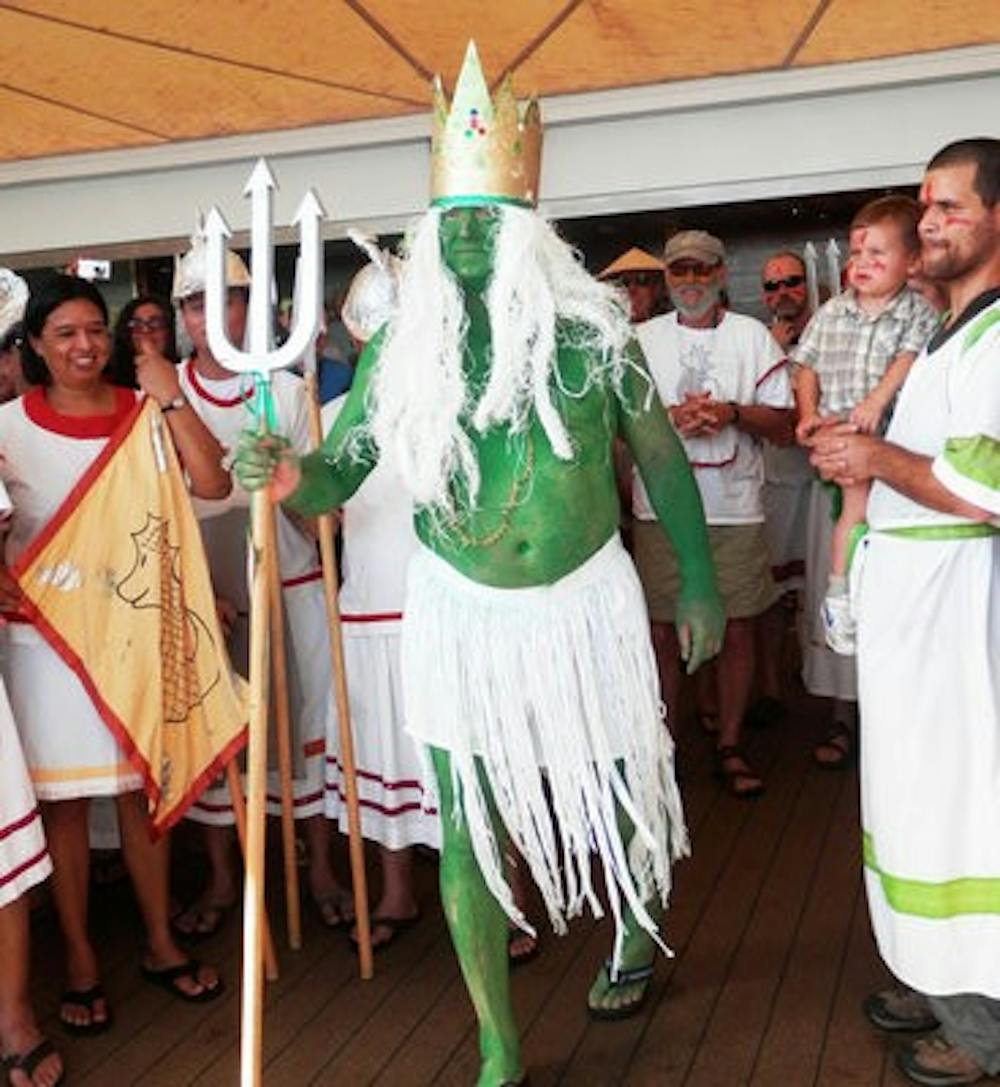Traveling around the world in one semester may seem intangible, but, through the University of Virginia, it is a possibility. Auburn University offers study abroad programs of its own, but it also works with other schools so that students can benefit from outside programs as well.
The University of Virginia organizes Semester at Sea, and allows students from other schools to apply to its program.
The students live on a ship for an entire semester, or summer, and travel the world while taking classes on the ship.
"There are a few similar programs, (but) Semester at Sea is by far the most popular one," said Korbin Dimmick, Auburn Abroad Coordinator.
Amanda Paulson, junior in political science and history, and Nathaniel Walden, senior in history, are two Auburn students who went on Semester at Sea for their study abroad experience. Paulson went on the voyage in Spring 2013.
They went all over the world, starting in San Diego and traveling to Mexico, Japan, China, Vietnam, Myanmar, Singapore, India, South Africa, Ghana, Morocco, Casablanca, Spain, and Hawaii, to name a few.
"My favorite place to go was Myanmar, or Burma, because everybody was excited to see us," Paulson said. "It was a brand new country that Americans had been allowed to go to."
Paulson said that she had the best experience in Ghana.
Walden said he enjoyed Ireland and South Africa the most during his fall 2012 trip.
Walden said a typical day on the ship wasn't too different from a day at Auburn. "It was just like a regular college day,"
According to Paulson, the students' classes were a hour and a half each, and they could take up to five classes. All of the classes were taken on the ship and ranged from a class size for 10-80 people per class.
There were different forms of entertainment on the ship for students, including a basketball court, insanity workouts, orientations about the countries they would see, a full-size library, and movies.
"I actually almost enjoyed the boat part . . . as much as being in countries," Paulson said. "You're cut off from the world. We had no Internet [and] no phones. You really sat down and talked to people."
Paulson said she got closer to the people on the ship in two months than a lot of the people she has known in Auburn for two years.
Paulson said the living situation was great, but Walden had reservations about the food served to the students.
"The food was terrible on the ship," Walden said.
According to Walden, a group of students participated in a boating excursion not affiliated with the Semester at Sea program, which resulted in the death of one of the students.
Walden said he doesn't blame anyone for the tragedy, which he called a freak accident.
"You know, when you're traveling to some of these foreign countries, they don't have the same safety regulations," Walden said. "It's just a risk you have to take."
Walden said other than the bad accident and bad food, his only other complaint about the trip was how long the ship took to get from country to country. Students could only take classes on the ship, so they had to go slowly between ports. Crossing the Atlantic or Pacific Ocean could take as long as nine or 10 days, the longest time the ship was at sea.
"We'd be at sea sometimes for nine or 10 days straight without seeing any land," Walden said. "You kind of. . . get sick of that."
Walden said his trip was approximately $25,000, not counting the expenses in the countries or ports.
According to the program, fees begin at $23,950. The program offers financial and scholarship opportunities, and students' aid from Auburn also may be transferrable.
Walden said he didn't know any other students on the trip, but he wanted to do something different then everyone else.
"Instead of just one country for three months, you get to go to 15 or 16," Walden said.
Though some Semester at Sea courses require or offer a field lab component, Paulson said on her trip, students had the freedom to explore different countries on their own.
As long as they submitted a form saying where they would be in case something happened, they truly could go wherever the sea took them.
Editor's Note: factual errors from this article have been corrected online, including the reference to the ship as a "boat" and the clarification that the boating accident was a part of an excursion neither affiliated with, nor endorsed by, the Semester at Sea program.
Do you like this story? The Plainsman doesn't accept money from tuition or student fees, and we don't charge a subscription fee. But you can donate to support The Plainsman.




